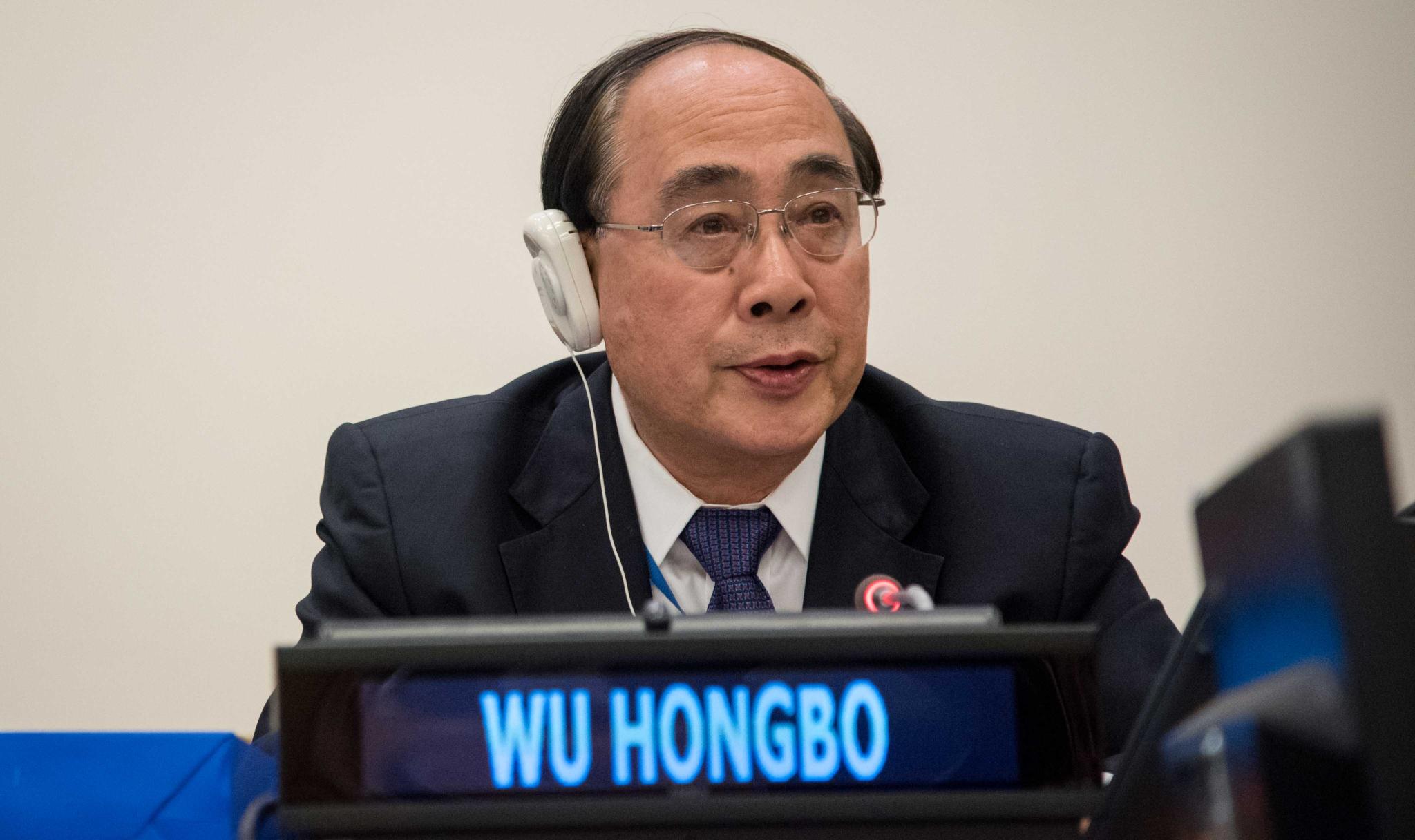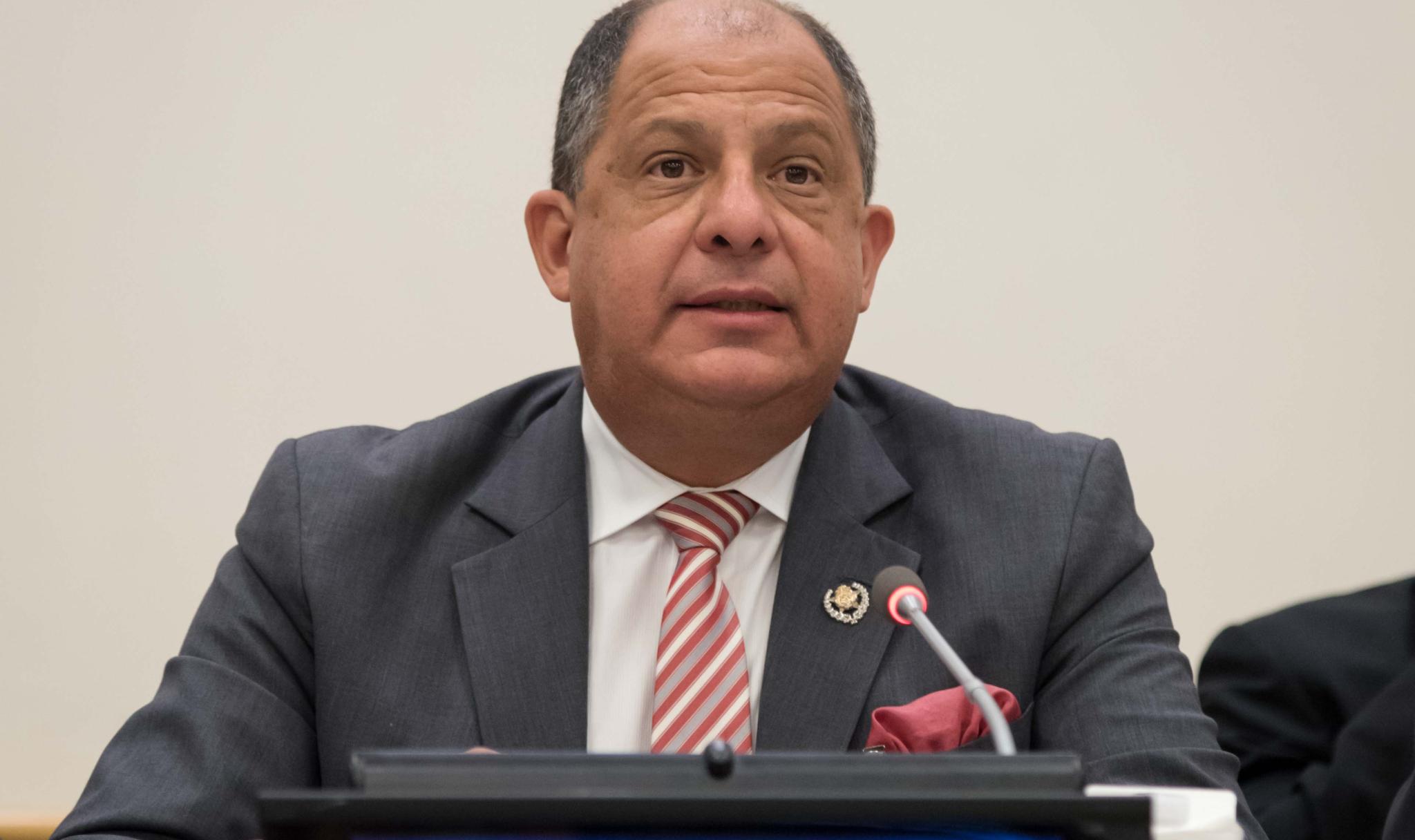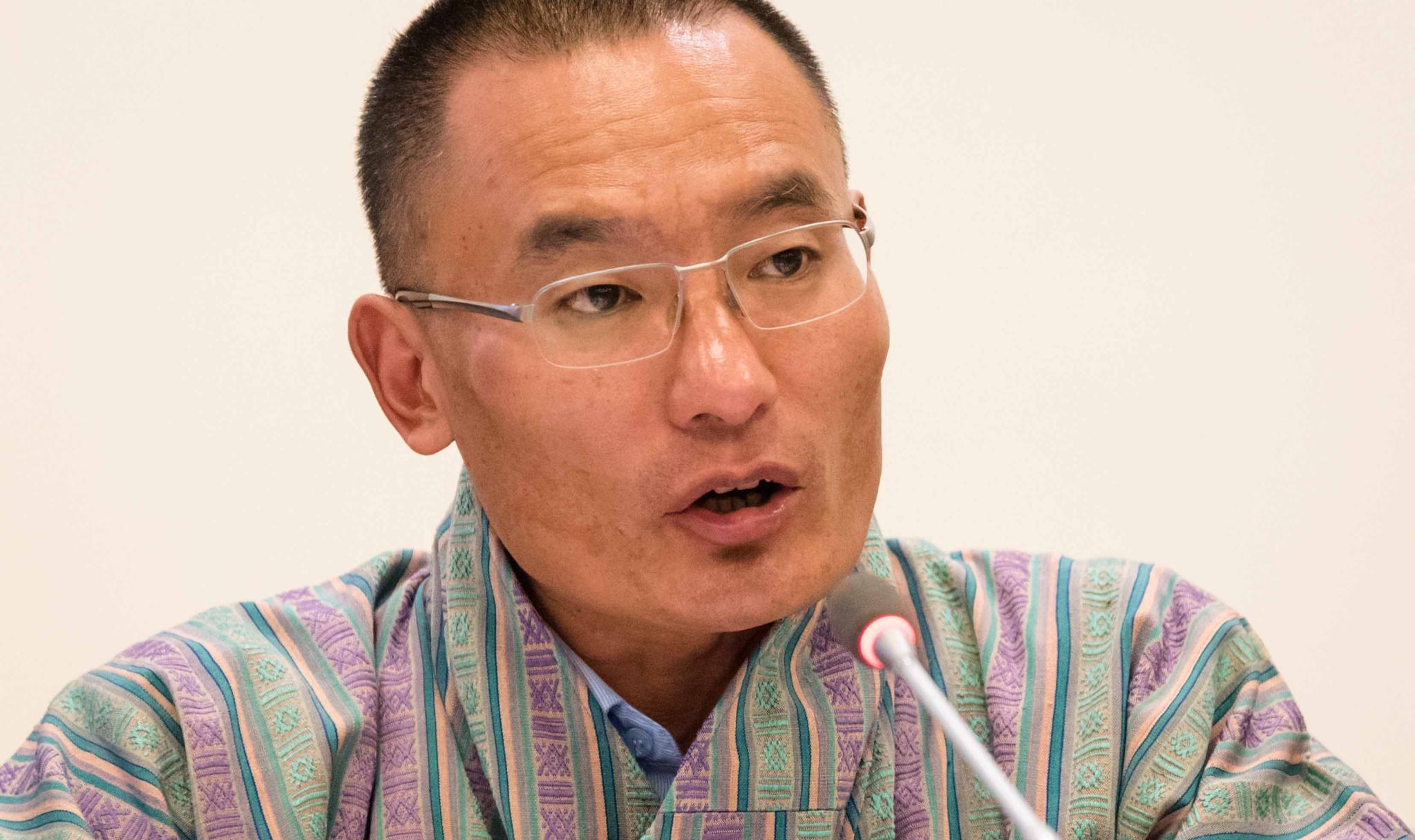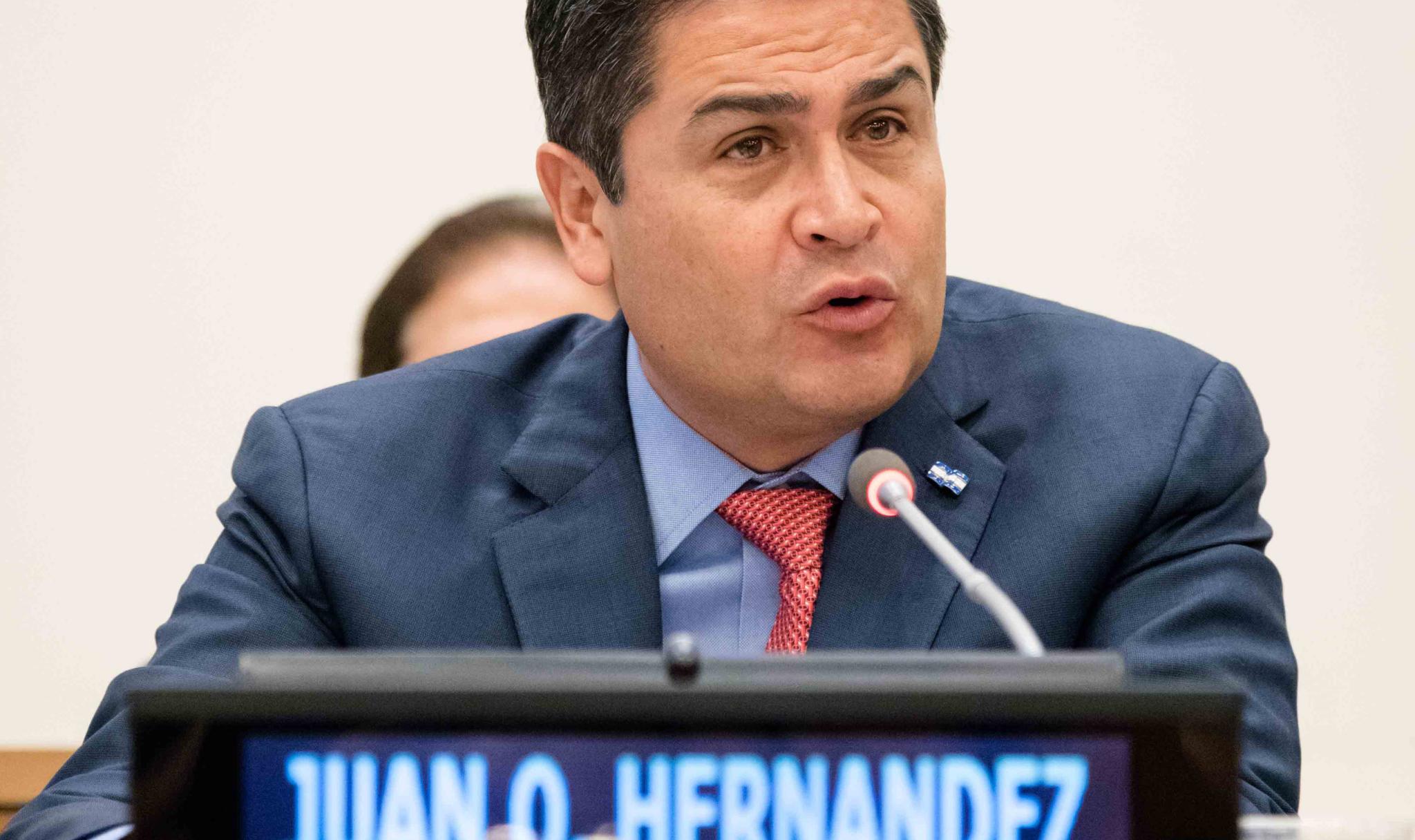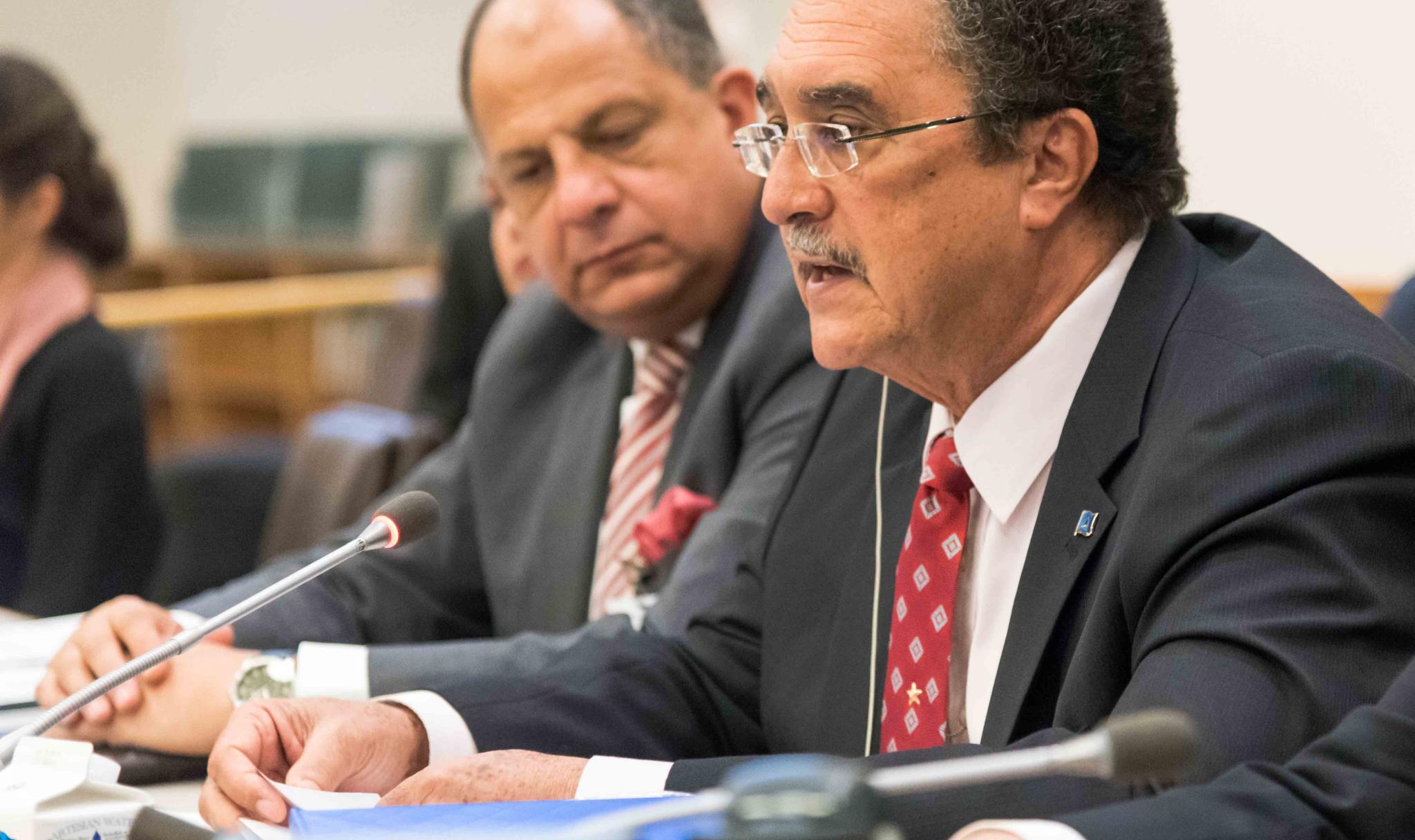World leaders show how integrated policies to fight poverty need multidimensional measures
Anchoring a Global Multidimensional Poverty Index within the SDGs
During the United Nations summit to agree a historic new global development agenda, twenty eminent speakers stressed the importance of adopting a multidimensional approach to measuring and eradicating poverty at the national and global levels.
The event celebrated the sea-change embodied within the new Sustainable Development Goals (SDGs), which recognises that ‘eradicating poverty in all its forms and dimensions’ as ‘the greatest global challenge’. The 20 speakers shared with passion and commitment their work to address poverty, using Multidimensional Poverty Indices (MPIs) that catalyse integrated policies and disaggregated data to leave no one behind.
Many calls were also made for an internationally comparable Global MPI to be a tier 1 indicator within the SDGs and for National MPIs, that measure poverty according to national definitions, to be aspirational indicators for Target 1.2. Speakers shared how multidimensional poverty metrics can help to fight poverty in all its forms and dimensions, how they can be disaggregated to help leave no one behind, and help catalyse integrated policies that address interlinked deprivations together – key principles of the SDGs.
The distinguished speakers, including Heads of State, Ministers of Planning and Ministers of Social Development, Finance and Foreign Affairs, are at the forefront of practical efforts to reduce all forms of poverty. The measures they use inform their efforts to improve lives of poor people. In their observations they showed how multidimensional poverty measures can complement monetary poverty measures.
The eminent leaders addressing the 200-strong audience included:
- E. Mr. Luis Guillermo Solís Rivera, President of Costa Rica
- E. Mr. Tshering Tobgay, Prime Minister of Bhutan
- E. Mr. Juan Orlando Hernández, President of Honduras
- E. Mr. Kenny Anthony, Prime Minister of Saint Lucia
- E. Mr. Wu Hongbo, Under-Secretary-General for Economic and Social Affairs, United Nations
Their contributions stressed the importance of putting poor people at the heart of the sustainable development agenda via multidimensional approaches to measuring and eradicating poverty.
The other speakers sharing important contributions on multidimensional poverty included:
- The Philippines: H.E. Dr. Arsenio Balisacan, Socioeconomic Planning Secretary of the Philippines
- Colombia: H.E. Tatyana Orozco de la Cruz, Director of the Department for Social Prosperity of Colombia
- South Africa: H.E. Jeff Radebe, Minister in the Presidency for Planning, Monitoring and Evaluation, South Africa
- Chile: H.E. Marcos Barraza Gómez, Minister of Social Development of Chile
- Viet Nam: H.E. Mr. Dang Huy Dong, Deputy Minister, Ministry of Planning and Investment of Viet Nam
- Ecuador: H.E. Cecilia Vaca Jones, Minister Coordinator of Social Development of Ecuador
- Islamic Development Bank: Dr. Savas Alpay, Chief Economist of the Islamic Development Bank
- Georgia: E. Mr Mikheil Janelidze, First Deputy Minister of Foreign Affairs of Georgia
- Senegal: H.E. Amadou Ba, Minister of Economy and Finance, Senegal
- League of Arab States and Tarek Nabil El Nabulsi, Director of Development and Social Policies Department, League of Arab States
- UN Economic and Social Commission for Western Asia: Khalid Abu-Ismail, Chief Economic Policy Section, UN Economic and Social Commission for Western Asia
- Germany: Dr. Ingolf Dietrich, Deputy Director-General, Head of the Special Unit of Post-2015 Agenda, Federal Ministry for Economic Cooperation and Development of Germany
- Panama: H.E. Mrs. María Luisa Navarro, Deputy Minister for Multilateral Affairs and Cooperation of Panama
- United States: Mr. Noam Unger, Deputy Assistant for Policy, Planning and Learning, USAID of the United States
- Mexico: Gabriel Rivera Conde, Chief Strategic Projects, Office of the President of Mexico
The discussion was fast-paced, focused and substantive. President Solis of Costa Rica called for a poverty narrative that inspires commitment and action – by government, but also by civil society and the private sector. Prime Minister Tobgay of Bhutan shared how multidimensional poverty and well-being measures create an insightful measurement framework for multi-level policy and programme design. Presidetn Hernandez of Honduras shared a compelling example of a campesino farmer whose life is trapped in a battery of interlocking deprivations, but also observed how the Global MPI enables Honduras to be compared on the world stage to countries in Asia and the Arab world. Prime Minister Anthony of St Lucia brought in Bob Marley to call for attention to the hidden, forgotten, and isolated people and the links between poverty and environmental degradation.
In the Ministerial Discussion, Arsenio Balisacan (Philippines) shared how their multidimensional poverty measures – which are incorporated in their national development plan – better reflected the impact of economic growth, while Tayana Orozco (Colombia) shared a distilled and compact overview of Colombia’s many-layered innovative policy uses of the MPI. Jeff Radebe (South Africa), stressed how measures that display the interlinkages of poverty can stimulate and guide integrated policy, and also mentioned how South Africa’s census-based MPI was a ‘precision measure of poverty’ that interested many. Marcos Barraza (Chile) shared the structure and findings of Chile’s official National MPI launched in January 2015, and Dang Huy Dong (Vietnam) explained the need to have a ‘headline’ indicator of multidimensional poverty to give visibility to social progress. Cecilia Vaca Jones (Ecuador), whose country will shortly release a national MPI, articulated how it resonated with the indigenous cosmology of Buen Vivir, of harmony between peoples, and with the environment. Savas Alpay (Islamic Development Bank) described the interest in Islamic Development Bank member countries in building national MPIs, and of their work in supporting capacity building in statistical offices.
In a closing set of brief and pithy remarks as well as submitted statements, other important points emerged. Mikheil Janelidze (Georgia) shared how MPI is a natural next step given their history of social policy interventions. Maria Luisa Navarro (Panama) charted Panama’s trajectory which has spawned an interest in multidimensional poverty measurement. Amadou Ba (Senegal) shared their work on building a national MPI – the first in Africa, and Tarek Nabulsi (League of Arab States) described the need in the Arab region for a comparable MPI, but one focused on moderate poverty, and their collaboration with UNESWA to bring this into being. Ingolf Dietrich (Germany) articulated Germany’s interest in following how multidimensional poverty metrics are evolving, and Noam Unger (USAID) shared how USAID’s new vision for extreme poverty is, for the first time, multidimensional. Mexico, the country who had released their National MPI even before UNDP’s Global MPI launch in 2010, closed the session, and welcomed participants to come to the next meeting of the Multidimensional Poverty Peer Network (mppn.org), which will be hosted by Mexico.
Highlights from the discussion included:
The UN Secretary General Ban Ki Moon, whose message to the audience was delivered by H.E. Mr. Wu Hongbo, Under-Secretary-General for Economic and Social Affairs, United Nations, shared with participants the number of Global MPI poor people in developing countries and said:
“Our challenge, at the global, national and local levels, is to reduce these numbers and ensure lives of dignity for all. That means accurately tracking vulnerability, exclusion and other key variables. It means seizing the great potential of the data revolution to help us better measure poverty and get a full picture of its impacts. Only then will Governments, which will be in the driver’s seat of implementation, be able to determine and pursue their national priorities.”
H.E. Mr. Luis Guillermo Solís Rivera, President of Costa Rica who celebrated the priority of poverty in all its forms and dimensions in the SDGs, and stressed how national multidimensional poverty index, or MPI, can improve the effectiveness of social policy. He said
“…leaders that are committed to fighting against poverty in all its dimensions need to join forces to create mechanisms to achieve our objectives. I believe in the relevance of making the complexity of our challenges visible: we must understand poverty as the deprivation of several capacities and living conditions, and not merely as the lack of income.”
Stressing the need to include a Global MPI within the SDGs he said:
“…similarly to the case of the $1.25-a-day indicator of extreme poverty, we need an index of multidimensional poverty that is comparable across countries and over time, such as the existing Global MPI of UNDP and OPHI. We need an index that considers acute and moderate poverty. And we need this index to be disaggregated by region and indicator.”
H.E. Mr. Tshering Tobgay, Prime Minister of Bhutan talked about Bhutan’s two-pronged approach to multidimensional measurement which captures the multiple dimensions of wellbeing in the form of the Gross National Happiness Index and the multiple dimensions of poverty in their official national MPI.
He observed that ‘Indicators are like eyes: they help us to see things; they bring matters into focus’ – and so shape action:
“Bhutan’s national MPI is not only a measure, it is also a tool – a policy tool. We use it to inform our allocation of resources. It identifies people who are poor because of gaps in infrastructure and social services, even where people are not income poor, as in one of our remotest district.”
He raised “the call to have a Global MPI as a Tier 1 indicator of the SDGs, and to support others to develop the use National MPIs” – yet he also encouraged linked measures of poverty and well-being:
“Together we can design a new metric by which to assess our societies and our own lives, one that not only leaves no person behind, but also leaves no part of human life and potential behind.”
H.E. Mr. Juan Orlando Hernández, President of Honduras, who grew up in the rural areas, used the case of Don Camilo to illustrate interconnected deprivations faced by farmers and their multiple causes. He said:
“It has taken us a long time to understand that poverty is multidimensional – that it is a complex phenomenon, and must be confronted with different tools and from different angles.”
He also showed how the Global MPI can be used to compare poverty in Honduras with situations in Asia and the Arab States. He said:
“This ability to differentiate between countries and regions using the MPI shows us the territorial imbalances that we must break.”
H.E. Mr. Kenny Anthony, Prime Minister of Saint Lucia who spoke about the particular challenges of the hidden, forgotten and isolated poor among small island developing states, drew out the potential of joining together efforts to fight poverty and to strike out environmental threats within the SDGs. He said that
“A Global MPI helps us know and understand poverty better, allows us to compare clearer, and gives us a stronger platform to remove the scourge of poverty from the human family.”
Of the new global development agenda he said:
“Lifting people out of poverty means uplifting the entire human experience. Target 1.2 of our new Sustainable Development Goals affirms this and promotes efforts for a Global Multidimensional Poverty Index.”
The further contributions from senior representatives of governments who have adopted or are establishing official national MPIs showed the energy, vitality and rapid pace of growth in this emerging area of poverty measurement. The meeting agenda shows the diversity of participants from around the world.
Leaders who could not speak in person shared statements on multidimensional poverty measurement efforts at the global and national levels including the President of Colombia, the Vice President of the Dominican Republic, the Head of Statistics of Sudan, and senior government officials from Turkey and Seychelles.
Photography credit: Zach Damberger



